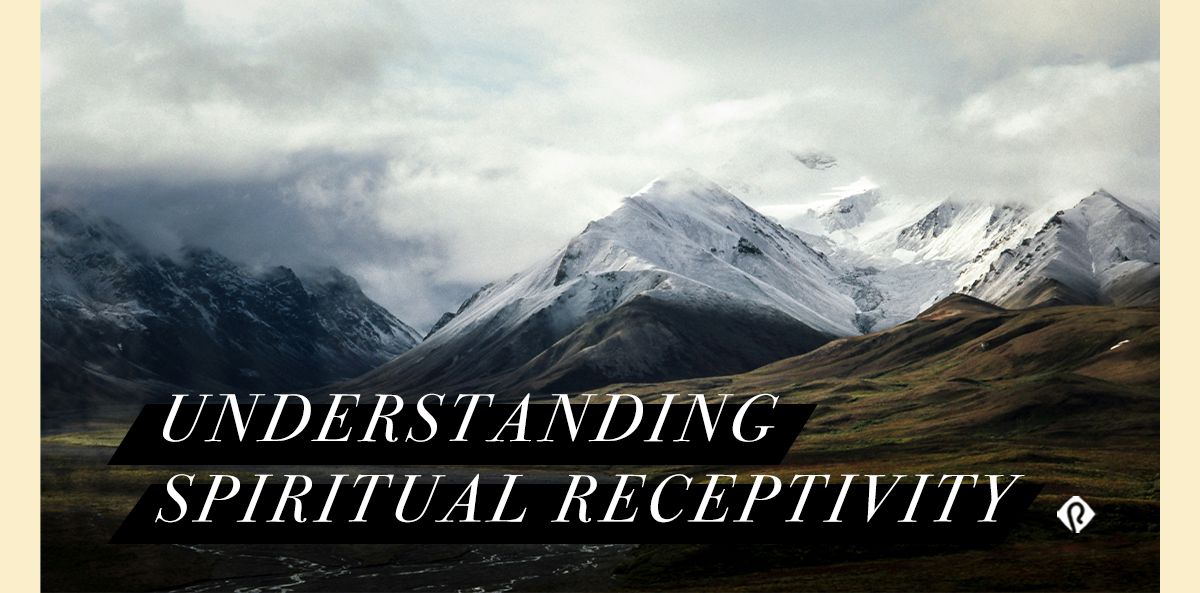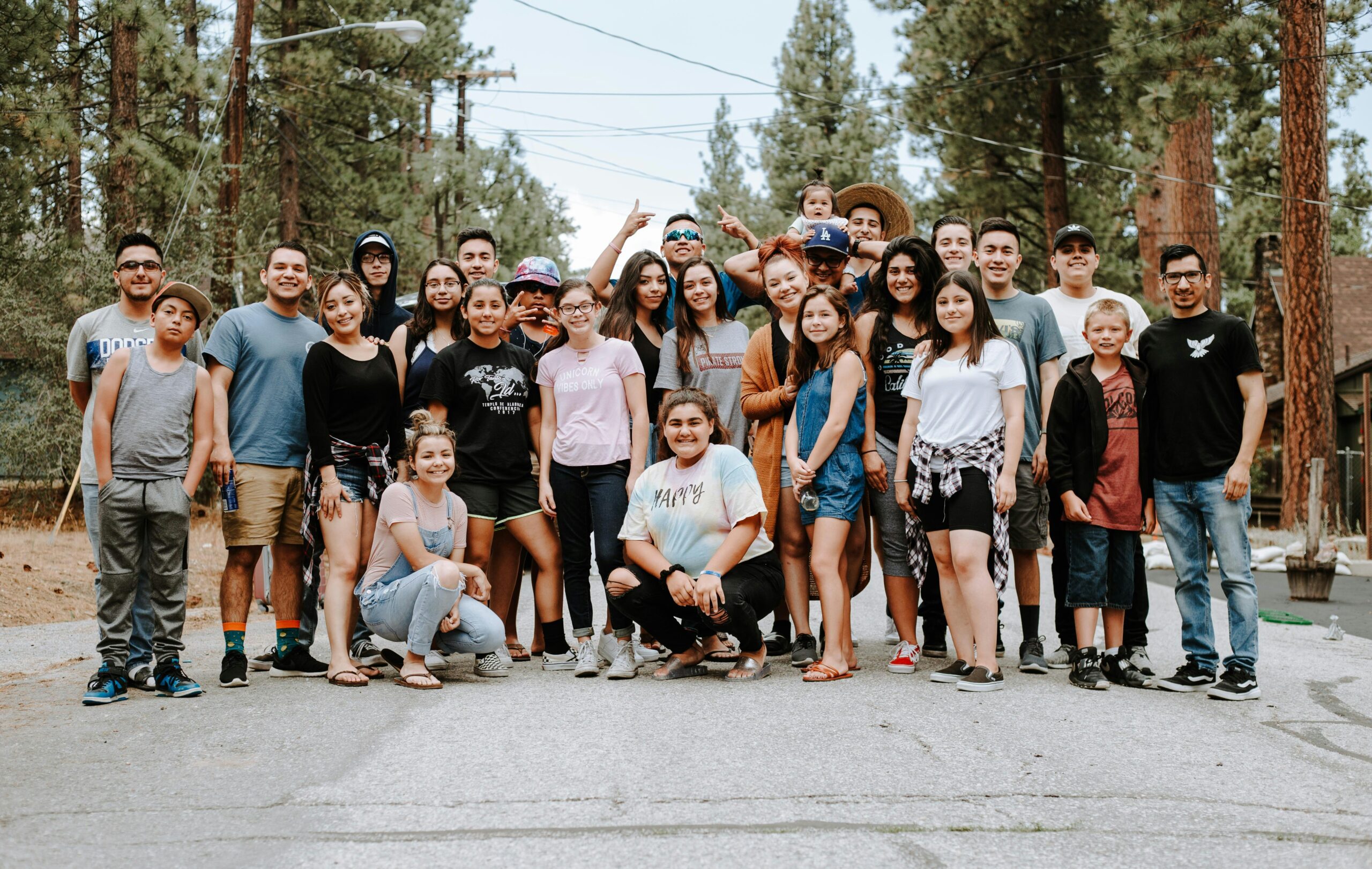FellowshipPreaching/TeachingLeadershipCelebrate RecoveryDiscipleshipSmall GroupsEvangelismWorshipMinistry
Our Global Mission: PEACE on Earth

Editor's Note: The following article by Pastor Rick originally appeared in the January/February 2013 issue of Ministry Today when he served as Guest Editor. Please continue to pray for the Warren family as they grieve the loss of Rick and Kay's son, Matthew.
[caption id="attachment_20343" align="alignright" width="300"] Learn more about the PEACE Plan at thepeaceplan.com.[/caption] The greatest need in the world today is to release the latent energy bottled up in believers who are doing nothing for the Kingdom of God. It’s time for the Church to rise up and be the Church. The Church is the Body of Christ; but it seems like our hands and feet have been amputated, and most of the time we’re just a big mouth. It’s time for the Church to stop being known for what we’re against and start being known for what we stand for: grace, compassion, mercy, forgiveness, salvation, and new life in Jesus Christ. That’s why we began re-thinking our mission strategy at Saddleback. Jesus tells us to “go everywhere in the world, and tell the Good News to everyone” (Mark 16:15 NCV). “Go” is a key word for believers. You can’t spell “Gospel” without “go.” You can’t spell “Good News” without “go.” You can’t spell “God” without “go.” Jesus commands us to go, meaning missions is not about sending out professional missionaries, organizations, or aid workers to do the work for us, although we need them and the valuable work they do. Jesus said, “You will be my witnesses in Jerusalem, and in all Judea and Samaria, and to the ends of the earth” (Acts 1:8 NIV). What is a witness? It’s real simple: A witness is somebody who tells his or her story. A witness just says, “This is what I saw. This is what I heard. This is what happened to me.” Nobody else can tell your story. You don’t need any special training to do it. Just tell people what Jesus has done in your life. Jesus also said, “You will be my witnesses in Jerusalem, and in all Judea and Samaria, and to the ends of the earth.” Now what does that mean for us? Jesus was laying out a plan of ever-increasing influence. When he said go to Jerusalem, he was saying start in your own backyard. Start with your family, your friends, your co-workers. “In Jerusalem” means start in your own city and neighborhood. Then he said you go to Judea and Samaria. Your Judea is the region where you live. For me, that’s Southern California. What state or district, province or prefecture do you live in? That’s your Judea. Then Jesus said go to Samaria. Samaria means people who live in your area but who are culturally different from you. Do you know anybody like that? Sure you do. They might even live next door to you. Jesus was saying, “Just go to people who are different from you.” And then he said, “Go to the ends of the earth.” That means go to everybody else. Love demands that we move beyond our comfort zone. Love demands that we go to people of different backgrounds, languages, and cultures. Jesus said, “Go and make disciples of all nations” (Matthew 28:19a). What are we supposed to do when we go for Jesus Christ? We’re supposed to do what Jesus did. He gave us the model. What did he do? Jesus didn’t just preach. He also cared for the oppressed, the poor, the sick, the aged, the blind, and the lepers. He cared about the mentally ill, the orphans, the widows, the imprisoned, and the homeless. Jesus cares about the people that the world wants to forget. The biggest problems the world faced in Jesus’ day are still the biggest problems the world faces today: spiritual emptiness, egocentric leadership, poverty, disease, and illiteracy. I call these the five global giants. These are problems that affect not just millions but billions of people. And how did Jesus take on these giants? He did five things: Jesus planted the church to reconcile men to God and to one another. He equipped servant leaders by training his disciples to serve rather than be served. He assisted the poor. He cared for the sick. And he educated the next generation I believe these are the five things Jesus wants us to do today as his followers. He wants us to go into all the world and Plant faith communities, Equip servant leaders, Assist the poor, Care for the sick, and Educate the next generation. These five things make up what I call the PEACE Plan. The PEACE Plan is a grassroots, church-to-church strategy. It’s a lay movement designed to mobilize ordinary church members in small groups that are empowered by God to do normal tasks that can make a difference in the world. The PEACE Plan is about all believers in every church doing all of the things Jesus told us to do. It’s about churches partnering with churches to take on the global giants in their communities. It’s about turning an audience into an army, turning consumers into contributors, and turning spectators into participators. P: Plant Faith Communities If we’re going to share the love of God with billions of people, we must help congregations in their ministry to the disaffected and overlooked. We must also help start new faith communities around the world. The Bible says in Romans 10:14, “Before people can ask the Lord for help, they must believe in him; and before they can believe in him, they must hear about him; and for them to hear about the Lord, someone must tell them” (NCV). E: Equip Leaders All around the world, there are leaders who abuse their power. Amazingly, many of these leaders refuse to use their power for the good of their own people; instead they use it for themselves. This has created chaos in the world. Zechariah 10:2 says, “People wander around like lost sheep. They are in trouble because they have no leader” (TEV). Proverbs 11:14 says, “Without wise leadership, a nation falls” (NLT). We must teach leaders at all levels that sound leadership requires a moral foundation (Proverbs 16:12). A: Assist the Poor More than half of the world — that’s 3 billion people — live on less than two dollars a day. One-sixth of the world’s population lives in slums. Research by the Christian relief organization World Vision suggests that about 600 million people in the world could get out of poverty quickly if someone would simply give them a small loan— not a gift, a loan — so they could start a small business and begin to pull themselves out of poverty. For instance, I have a friend in South Africa who teaches people how to plant gardens. From those vegetable gardens, they’re able to feed their own family, AIDS orphans, and other poor people in their church, and then they have a bit left over to sell for income. Another friend in Guinea helps prostitutes get off the street by teaching them how to style hair or how to sew and then gives them a sewing machine. They’re usually able to pay back the cost of the machine over 16 weeks, and none of these women have gone back to prostitution. Proverbs 29:7 says, “The righteous care about justice for the poor, but the wicked have no such concern” (NIV). C: Care for the Sick Tragically, hundreds of millions of people around the world are dying from preventable illnesses. Even though we found a cure for these diseases in the 19th and 20th centuries, people in the 21st century are still dying from them. Think about this: Eleven million children die every year — that’s 27,000 every single day — from preventable illnesses. The number one reason that children die is diseases that come from unclean water. We know how to clean up water, yet millions of children are dying every year from diseases they get from drinking unclean water. My prayer is that we can mobilize the health care professionals in faith communities across our country. These professionals have knowledge, expertise, and experience that can make life better for millions of people around our world. My wife is a breast cancer survivor. When she was diagnosed with the disease, we were able to get her the best treatment available anywhere. She had great doctors and received the needed medications. But there are so many in our world that have no hope as they face disease and death. It grieves me greatly, knowing there are other husbands who must watch their wives suffer and die because they cannot get the medical help they need. E: Educate the Next Generation I once visited a school just outside Johannesburg, South Africa. There were about 1,500 kids, and they all were sitting on the ground. They had no building; there was no water, no electricity, and no books. Yet there is a waiting list of children wanting to get into this school so they can sit in the dirt and learn, safe and off the street. I also visited a little school in a church where they have adopted 25 AIDS orphans. I asked the headmaster, “What is the greatest need for your school? Is it a building? Is it more students? Is it curriculum? What is it?” He said, “Books. We have no books.” How can you teach and how can a country be strong when its children are not educated? How can a country grow and be strong economically when its citizens can’t read, can’t write, and don’t know the fundamentals of math and science that we take for granted? Over half the world is still illiterate. It’s no wonder these countries aren’t strong. Only the Church, through the power of the Holy Spirit, can take on these global giants. No government can do it. If they could have, they would have. No organization can do it. Only the Church can do it. Only the Church has the manpower — nearly 2 billion volunteers in churches all over the globe, waiting to be mobilized. Only the Church has the willpower to rise up in the name of Jesus and for the glory of God. And, most important, only the Church has the Holy Spirit’s power to enable us to do what is otherwise impossible. Jesus has called us to do it, he has commanded us to do it, and he has commissioned us to do it. The question is, will you do it? Will you do what Jesus said? His command to go is not just for clergy or missionaries or professional ministers. It is for every follower of Jesus Christ. The rallying cry of the PEACE Plan is Psalm 67:2: “Send us around the world with the news of your saving power and your eternal plan for all mankind” (LB). The critical question of this hour is: Will we, the Church of God around the world, retreat in the face of these global giants, or will we face them in faith, claiming the promises of God and the power of his Spirit, and defeat these giants for the glory of God? People of Ordinary Faith Working Together These problems are gigantic, but ordinary people of faith who work together can chip away the chaos and bring hope back to the hopeless. We’ve trained thousands of Saddleback members to go on mission trips around the world. They often take with them what we call “Clinics in a Box.” We take a box and fill it with common medicine — things we take for granted but are like gold in many places where there’s no health care. Small groups of our members deliver these boxes. They also help plant faith communities, train leaders, help the poor, care for the sick, and educate the next generation. Our mission has eternal consequences. Heaven and Hell are in the balance. God wants to use the people in our congregations to reach the world for Jesus. We need to show them that the greatest thrill and adventure in life is to be used by God. Jesus said, “Only those who throw their lives away for my sake and for the sake of the Good News will ever know what it means to really live” (Mark 8:35 LB). Learn more about the PEACE Plan at thepeaceplan.com.
[caption id="attachment_20343" align="alignright" width="300"] Learn more about the PEACE Plan at thepeaceplan.com.[/caption] The greatest need in the world today is to release the latent energy bottled up in believers who are doing nothing for the Kingdom of God. It’s time for the Church to rise up and be the Church. The Church is the Body of Christ; but it seems like our hands and feet have been amputated, and most of the time we’re just a big mouth. It’s time for the Church to stop being known for what we’re against and start being known for what we stand for: grace, compassion, mercy, forgiveness, salvation, and new life in Jesus Christ. That’s why we began re-thinking our mission strategy at Saddleback. Jesus tells us to “go everywhere in the world, and tell the Good News to everyone” (Mark 16:15 NCV). “Go” is a key word for believers. You can’t spell “Gospel” without “go.” You can’t spell “Good News” without “go.” You can’t spell “God” without “go.” Jesus commands us to go, meaning missions is not about sending out professional missionaries, organizations, or aid workers to do the work for us, although we need them and the valuable work they do. Jesus said, “You will be my witnesses in Jerusalem, and in all Judea and Samaria, and to the ends of the earth” (Acts 1:8 NIV). What is a witness? It’s real simple: A witness is somebody who tells his or her story. A witness just says, “This is what I saw. This is what I heard. This is what happened to me.” Nobody else can tell your story. You don’t need any special training to do it. Just tell people what Jesus has done in your life. Jesus also said, “You will be my witnesses in Jerusalem, and in all Judea and Samaria, and to the ends of the earth.” Now what does that mean for us? Jesus was laying out a plan of ever-increasing influence. When he said go to Jerusalem, he was saying start in your own backyard. Start with your family, your friends, your co-workers. “In Jerusalem” means start in your own city and neighborhood. Then he said you go to Judea and Samaria. Your Judea is the region where you live. For me, that’s Southern California. What state or district, province or prefecture do you live in? That’s your Judea. Then Jesus said go to Samaria. Samaria means people who live in your area but who are culturally different from you. Do you know anybody like that? Sure you do. They might even live next door to you. Jesus was saying, “Just go to people who are different from you.” And then he said, “Go to the ends of the earth.” That means go to everybody else. Love demands that we move beyond our comfort zone. Love demands that we go to people of different backgrounds, languages, and cultures. Jesus said, “Go and make disciples of all nations” (Matthew 28:19a). What are we supposed to do when we go for Jesus Christ? We’re supposed to do what Jesus did. He gave us the model. What did he do? Jesus didn’t just preach. He also cared for the oppressed, the poor, the sick, the aged, the blind, and the lepers. He cared about the mentally ill, the orphans, the widows, the imprisoned, and the homeless. Jesus cares about the people that the world wants to forget. The biggest problems the world faced in Jesus’ day are still the biggest problems the world faces today: spiritual emptiness, egocentric leadership, poverty, disease, and illiteracy. I call these the five global giants. These are problems that affect not just millions but billions of people. And how did Jesus take on these giants? He did five things: Jesus planted the church to reconcile men to God and to one another. He equipped servant leaders by training his disciples to serve rather than be served. He assisted the poor. He cared for the sick. And he educated the next generation I believe these are the five things Jesus wants us to do today as his followers. He wants us to go into all the world and Plant faith communities, Equip servant leaders, Assist the poor, Care for the sick, and Educate the next generation. These five things make up what I call the PEACE Plan. The PEACE Plan is a grassroots, church-to-church strategy. It’s a lay movement designed to mobilize ordinary church members in small groups that are empowered by God to do normal tasks that can make a difference in the world. The PEACE Plan is about all believers in every church doing all of the things Jesus told us to do. It’s about churches partnering with churches to take on the global giants in their communities. It’s about turning an audience into an army, turning consumers into contributors, and turning spectators into participators. P: Plant Faith Communities If we’re going to share the love of God with billions of people, we must help congregations in their ministry to the disaffected and overlooked. We must also help start new faith communities around the world. The Bible says in Romans 10:14, “Before people can ask the Lord for help, they must believe in him; and before they can believe in him, they must hear about him; and for them to hear about the Lord, someone must tell them” (NCV). E: Equip Leaders All around the world, there are leaders who abuse their power. Amazingly, many of these leaders refuse to use their power for the good of their own people; instead they use it for themselves. This has created chaos in the world. Zechariah 10:2 says, “People wander around like lost sheep. They are in trouble because they have no leader” (TEV). Proverbs 11:14 says, “Without wise leadership, a nation falls” (NLT). We must teach leaders at all levels that sound leadership requires a moral foundation (Proverbs 16:12). A: Assist the Poor More than half of the world — that’s 3 billion people — live on less than two dollars a day. One-sixth of the world’s population lives in slums. Research by the Christian relief organization World Vision suggests that about 600 million people in the world could get out of poverty quickly if someone would simply give them a small loan— not a gift, a loan — so they could start a small business and begin to pull themselves out of poverty. For instance, I have a friend in South Africa who teaches people how to plant gardens. From those vegetable gardens, they’re able to feed their own family, AIDS orphans, and other poor people in their church, and then they have a bit left over to sell for income. Another friend in Guinea helps prostitutes get off the street by teaching them how to style hair or how to sew and then gives them a sewing machine. They’re usually able to pay back the cost of the machine over 16 weeks, and none of these women have gone back to prostitution. Proverbs 29:7 says, “The righteous care about justice for the poor, but the wicked have no such concern” (NIV). C: Care for the Sick Tragically, hundreds of millions of people around the world are dying from preventable illnesses. Even though we found a cure for these diseases in the 19th and 20th centuries, people in the 21st century are still dying from them. Think about this: Eleven million children die every year — that’s 27,000 every single day — from preventable illnesses. The number one reason that children die is diseases that come from unclean water. We know how to clean up water, yet millions of children are dying every year from diseases they get from drinking unclean water. My prayer is that we can mobilize the health care professionals in faith communities across our country. These professionals have knowledge, expertise, and experience that can make life better for millions of people around our world. My wife is a breast cancer survivor. When she was diagnosed with the disease, we were able to get her the best treatment available anywhere. She had great doctors and received the needed medications. But there are so many in our world that have no hope as they face disease and death. It grieves me greatly, knowing there are other husbands who must watch their wives suffer and die because they cannot get the medical help they need. E: Educate the Next Generation I once visited a school just outside Johannesburg, South Africa. There were about 1,500 kids, and they all were sitting on the ground. They had no building; there was no water, no electricity, and no books. Yet there is a waiting list of children wanting to get into this school so they can sit in the dirt and learn, safe and off the street. I also visited a little school in a church where they have adopted 25 AIDS orphans. I asked the headmaster, “What is the greatest need for your school? Is it a building? Is it more students? Is it curriculum? What is it?” He said, “Books. We have no books.” How can you teach and how can a country be strong when its children are not educated? How can a country grow and be strong economically when its citizens can’t read, can’t write, and don’t know the fundamentals of math and science that we take for granted? Over half the world is still illiterate. It’s no wonder these countries aren’t strong. Only the Church, through the power of the Holy Spirit, can take on these global giants. No government can do it. If they could have, they would have. No organization can do it. Only the Church can do it. Only the Church has the manpower — nearly 2 billion volunteers in churches all over the globe, waiting to be mobilized. Only the Church has the willpower to rise up in the name of Jesus and for the glory of God. And, most important, only the Church has the Holy Spirit’s power to enable us to do what is otherwise impossible. Jesus has called us to do it, he has commanded us to do it, and he has commissioned us to do it. The question is, will you do it? Will you do what Jesus said? His command to go is not just for clergy or missionaries or professional ministers. It is for every follower of Jesus Christ. The rallying cry of the PEACE Plan is Psalm 67:2: “Send us around the world with the news of your saving power and your eternal plan for all mankind” (LB). The critical question of this hour is: Will we, the Church of God around the world, retreat in the face of these global giants, or will we face them in faith, claiming the promises of God and the power of his Spirit, and defeat these giants for the glory of God? People of Ordinary Faith Working Together These problems are gigantic, but ordinary people of faith who work together can chip away the chaos and bring hope back to the hopeless. We’ve trained thousands of Saddleback members to go on mission trips around the world. They often take with them what we call “Clinics in a Box.” We take a box and fill it with common medicine — things we take for granted but are like gold in many places where there’s no health care. Small groups of our members deliver these boxes. They also help plant faith communities, train leaders, help the poor, care for the sick, and educate the next generation. Our mission has eternal consequences. Heaven and Hell are in the balance. God wants to use the people in our congregations to reach the world for Jesus. We need to show them that the greatest thrill and adventure in life is to be used by God. Jesus said, “Only those who throw their lives away for my sake and for the sake of the Good News will ever know what it means to really live” (Mark 8:35 LB). Learn more about the PEACE Plan at thepeaceplan.com.







